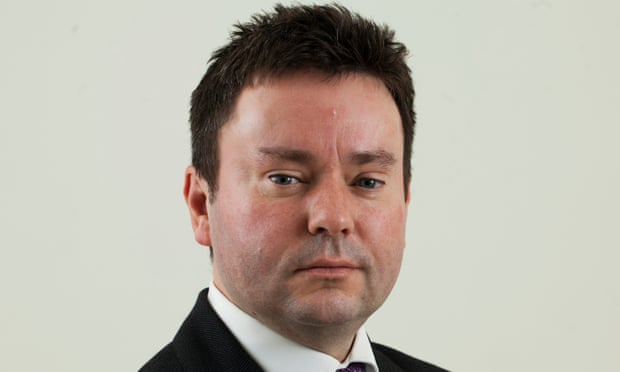It is surprising the extent to which The Guardian newspaper / media venue is subject to criticism from it's own readership and also the wider political and social community. It is one of the few truly influential and substantive media outlets which is not owned and controlled either by a national government or by an individual or family group (albeit a family is very much involved in it via the eponymous Scott Trust). Before I start criticizing it, I should explain the ownership and control structure of The Guardian group in order to contextualize how decisions are made there.
The Guardian is owned by Guardian Media Group, which has only one shareholder - the Scott Trust.
The Scott Trust, named after The Guardian's longest serving editor, CP Scott, exists to "secure the financial and editorial independence of the Guardian in perpetuity".
CP Scott defined the Guardian's founding principles as:
"honesty; cleanness; courage; fairness; and a sense of duty to the reader and the community"
These are effectively (somehow) embedded in the operating principles of the Guardian Media Group. The problematic aspect is that the Guardian Media Group (GMG) is a for profit UK company which "delivers the financial security that allows The Scott Trust to achieve its central objective", it's technically a holding company with operating companies underneath it. The above-mentioned principles are subject to the whim of whomever controls the Guardian Media Group entity.
Though the Scott Trust is the ultimate controller (via it's 100% ownership stake) in reality the executives of GMG are the people who take the decisions with respect to the immediate direction of the company. The GMG executives are the managers of the Guardian Media Group.
The Scott Trust's Directors are:
(2015, Chairman since 2021)
Somewhat bizarrely, in order to maintain it's independence, The Scott Trust has appointed a career Mckinsey consultant and serial board member who sits on a number of other boards in Scandinavia of non-independent media groups which are actually controlled by wealthy families. Works at Columbia University.
Emily Bell
(Trustee since 2013)
A former Guardian stalwart who launched the Guardian's original online presence (Guardian Unlimited) and later departed to take a professorship at Columbia University. Given the plethora of digital interests within the group, her experience must be vital. However, as a result of the governance review she will move to the GMG board.
Catherine Howarth
(Non-Exec since 2015)
A serial board member and corporate governance activist. Has negotiated her way into many a board room through the use of the Share Action platform. Unclear what is brought from a media perspective given her primary specialism is in lobbying companies and financial service firms to change their corporate practices and one feels that the Guardian is not the immediate priority for this kind of thing.
David Olusoga
(Non-Exec since 2018)
A writer, director and academic with impeccable credentials and a long track record on the creative side but precious little commercial experience.
Nils Pratley
(Journalist Director since 2016)
The Guardian's business and city correspondent and the person elected by the Guardian's journalistic staff to represent the interests of the Group's editorial staff on the Scott Trust. Katherine Viner (effective GMG CEO) is his boss.
(Non-Exec since 2015)
Strange choice but one of the longest serving members of the trust board. Has a long track record at Penguin and Harper Collins on the executive side but these are private sector commercial publishing organizations rather than freedom promoting journalistic institutions. One of few board members who pre-dates Katherine Viner.
Matthew Ryder
(Trustee since 2020)
A campaigning barrister who has also worked for the Mayor of London under Sadiq Khan's administration, he brings a long career of specialist legal understanding on Human Rights issues and media law topics. From his background and pedigree, one of the most qualified people to be sitting on the Scott Trust board given it's raison d'etre.
(Trustee since 2015)
Vivian Schiller joined the Scott Trust in 2015. She is Executive
Director of Aspen Digital, a program of the Aspen Institute. Previously
she has held multiple high-profile media roles including head of news at
Twitter, general manager of NYTimes.com and president and CEO of
National Public Radio. Strong background given the priorities of the trust, especially her experience with NPR which has to survive the markedly more cut-throat and evil media landscape .
Mary Ann Sieghart
(Trustee since 2020)
A stalwart of the right-of-centre press with impeccable credentials when it comes to middle-of-the-road commentary. She also sits on a number of investment trust boards which is one of the easiest gigs in the professional director career. Recently "promoted"to the GMG board where the money is better.
Russell Scott
(SID since 2015)
Has the longest career description on the Scott Trust website which is ironic given his main qualification is in the name. Obviously trusts are a complex way of pretending assets are not part of a family but it must be said that the Scott family have generally only taken a minimal direct salary from the Scott Trust and have thus avoided riding on the coat tails of the group by focusing on such media-unrelated areas as "(a) consultancy business specialising in strategy and execution for digital audience growth and monetisation" and "...senior roles in consumer publishing, digital and broadcast sectors".
(Trustee since 2015 when she also became Editor-in-Chief of the Guardian News & Media)
Katharine Viner is the Editor of the Guardian and effectively the most powerful person in the GMG and Scott Trust. She makes editorial decisions and recently ousted the CEO of the GMG when they clashed over the commercial direction of the enterprise. She led the fledgling Australian organization before transferring over to the perenially loss-making US side of affairs. Ms Viner is the person who carries most responsibility for the future progress or otherwise of the GMG and Guardian News Media.
Guardian Media Group
For reasons which may become clearer, Guardian Media Group has a substantive board of non-executive directors and also a group of executive directors who are not directly involved in the underlying operating companies. Though this seems illogical, given the enterprise is effectively a subsidiary of another (trust) company and that it creates a duplication of oversight between an asset owner and it's underlying operating entities, the rationale for this becomes clearer when one examines who makes the day-to-day decisions. GMG is becoming the effective senior management and also the effective governing organization of the Guardian and is, in effect, supplanting both the Scott Trust and the management of the underlying entities. The Scott Trust is put nicely in a corner where it can get on with it's business of, well, being the Scott Trust. At the same time, the operational management of the underlying organizations within the GMG (ie Guardian News & Media) become "focused" on their roles of being journalists and stay out of the "commercial and financial strategy and delivery" which will become the preserve of the GMG.
GMG tried to obfuscate this earlier in the year when a long-touted "governance review" determined that all was well but that "to support a business structure and model which has now been largely supplanted by a new model focused squarely on journalism" a "...clarif(ication of) our governance arrangements will give better support to the business and to our senior executive team in developing and implementing successful long-term strategies across editorial, commercial, product, data and other teams.". This is the kind of garbled management speak of which Mckinsey would be proud and is much loved in corporate world but perhaps something which the Guardian might wish to shy away from given it's focus on editorial and journalistic independence and integrity. In effect what happened was that two of the Scott Trustees mentioned above (Ms Bell and Ms Sieghart) moved from the Trust to the GMG, where opportunities to influence and be paid commercial salaries will be enhanced and which, we assume, will lead to a dilution of power at the Scott Trust level.
GMG Ventures
At the same time, GMG has chosen to incoporate a hellish-sounding VC fund (GMG Ventures) which will be structured for tax efficiency purposes within the group, handily providing a sink (and means of tax structuring) for losses on speculative ventures as these can be hived off into a subsidiary (and offset against tax liabilities on investment gains from the broader GMG) as opposed to handled within GNM itself and inevitably, should any of these be successful, used as a spin-off vehicle to enrich the relevant GMG executives and generate investment returns for GMG (with a nice kicker for GMG Ventures LLP and it's five employees). Effectively seeking to replicate the staggeringly successful Auto Trader transaction which was master-minded by former GMG CIO and head of GMG Ventures Alan Hudson. As per the GMG website "GMG’s investments provide financial security and support for our
journalism... GMG has built a cash
and investment fund of over £800 million, which includes the proceeds
from the 2014 disposal of its 50.1% holding in Trader Media Group (Auto Trader)."
I guess the question you might ask yourself at this point would be why, when GMG's position is secure following the Auto Trader transaction has it decided to set-up it's own Venture Capital Fund? A VC fund is like a long term hedge fund where returns accrue more slowly (provided one avoids shitting the bed in a world of highly speculative investments) and where you can invest more readily in your friends businesses with less scrutiny. It's not like the GMG is in need of the money and it's unlikely that managing a moderately sized VC fund wont distract the attention of the otherwise busy GMG executives. Indeed it seems that the management of GMG should be more focused on "commercial and financial strategy and delivery" as opposed to structuring VC funds, but, thank goodness, Alan Hudson and his team of four are there to manage the fund and ensure that everything is OK.
Obviously given GNM's unhappiness with tax havens, we hope that GMG Ventures wont engage in the kind of aggressive offshore tax planning which GNM has done so much to expose. That kind of thing might call into question the editorial independence of Guardian News & Media.









.jpg/220px-Neil_Hamilton_AM_(28136586146).jpg)




